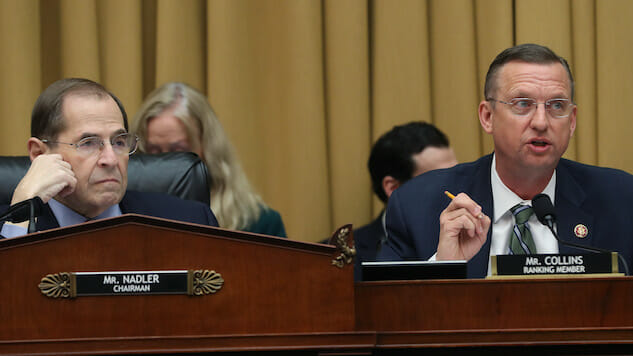House Judiciary Committee Approves Subpoena for Mueller Report, Increases Pressure on Barr
Photo by Mark Wilson/Getty
The House Judiciary Committee has voted to allow its chairman, Rep. Jerrold Nadler of New York, to issue a subpoena to the Justice Department for special counsel Robert Mueller’s full report and all of its related evidence, the New York Times reports.
-

-

-

-

-

-

-

-

-

-

-

-

-

-

-

-

-

-

-

-

-

-

-

-

-

-

-

-

-

-

-

-

-

-

-

-

-

-

-

-








































